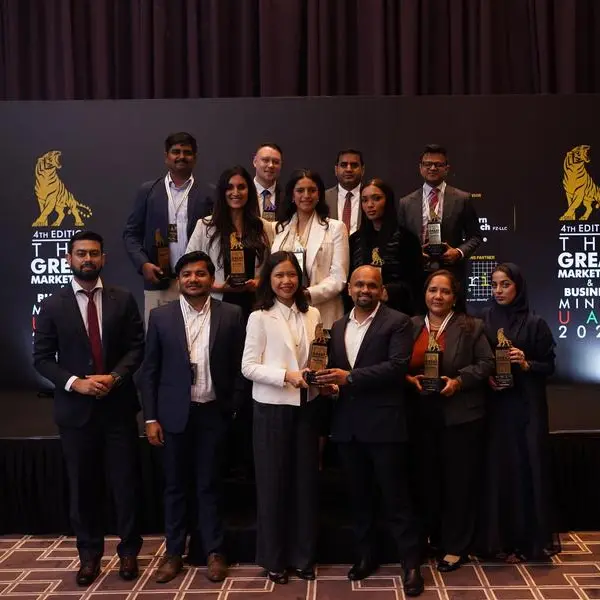- PwC Middle East, the knowledge partner of the World Government Summit, launches two papers at the 10th Edition of the global summit; 'Labour Policies for a Digital Workforce: The Challenges of the Metaverse.' and 'The Future of Wellbeing: Next Policy Steps for Building mentally resilient societies'.
United Arab Emirates – PwC Middle East participates in this year's 10th edition of the World Government Summit held at Madinat Jumeirah, Dubai, from 13 – 15 February, 2023, reinforcing the firm's commitment to supporting governments to navigate the challenges and opportunities presented by a rapidly changing world.
For almost a decade, PwC Middle East has been a proud knowledge partner of the World Government Summit, developing numerous strategic insights and reports across key areas. Additionally, the firm supports the work to recognise prominent government leaders and excellence in public service through the "Best Minister Award''.
Commenting on the firm's strategic partnership with the World Government Summit, Hani Ashkar, Senior Partner, PwC Middle East, said: "Governments across the region are transforming, guided by their national visions to enhance and reshape the security, stability and social wellbeing of its citizens while tackling the most pressing global issues. Our partnership with the World Government Summit comes to recognise and celebrate government resilience as well as sharing insights and demonstrating our expertise in working with the public sector. " He added: "At PwC Middle East, we’re extremely proud of our decade-long partnership with the World Government Summit. We're committed to helping governments and the public sector around the world build trust, navigate and respond to the rapid changes, including technological disruption, climate change, and demographic change."
This year, PwC Middle East launched two thought leadership papers at the event in collaboration with the World Government Summit. These reports include 'Labour Policies for a Digital Workforce: The Challenges of the Metaverse' and 'The Future of Wellbeing: Next Policy Steps for Building Mentally Resilient Societies'.
On the second day of the summit, PwC Middle East hosted a press conference, bringing together industry experts, senior leaders and offering a unique opportunity to discuss the most pressing global issues centred around labour policies for a digital workforce, the future of well-being, and the challenges of the metaverse from a labour policy perspective.
PwC's first paper, in partnership with the World Government Summit, titled "Labor Policies for a Digital Workforce: The Challenges of the Metaverse", explores the urgency for policymakers to start laying down the foundations of governance and policy to adapt to the challenges of operating in the metaverse.
"New regulatory frameworks are crucial to help governments prepare for the era of the metaverse and ensure the safety and well-being of their citizens, in particular in the labor markets of the future. Adapting to this emerging digital reality will have its challenges for governments, who need to enhance their knowledge and capabilities to be able to regulate the work and employment taking place in the metaverse. Moreover, future governments will need to become ambidextrous in a hybrid digital/analogue world, and be able to operate with equal rigor and effectiveness across both domains.” said Randa Bahsoun, Partner, Government and Public Sector, PwC Middle East, commenting on the new paper launch.
The second paper, “The Future of Wellbeing: Next Policy Steps for Building Mentally Resilient Societies” builds on the leading professional services firm 2022 report with the World Government Summit on “Making Wellbeing a National Priority”. The new paper explores critical measures and initiatives governments can develop to deliver sustained results in mental healthcare and wellbeing.
Hamish Clark, Middle East Health Industries Partner and Middle East Chief Wellness Officer, PwC Middle East, said: "Wellbeing is integral to the health of society, and Governments need to take action on behalf of their citizens. Although we are seeing some great examples of this globally, ultimately stigmas and misinformation continue to exist, and the provision of mental health services falls far short from what is needed. Governments need to increase funding for both the recruitment and training of more mental health professionals, and broaden access to digital mental health care and wellbeing products and services. They also need to invest in the wellbeing of their citizens earlier on, collecting and processing more and better data on child and adolescent mental healthcare and support to give them the best possible chance in life."
PwC’s global strategy, The New Equation, enables our community of solvers to support government and public sector clients as they pursue their powerful national agendas, addressing their needs to respond to the rapid changes taking place globally while building public confidence and trust - delivering sustained outcomes for organisations, stakeholders and communities that make a positive and sustainable impact.
-Ends-
For more information on PwC's participation at the World Government Summit, please contact Sima Samimi, PR & External Comms Lead, on this email and Basma Mohamed, PR & External Comms Senior Associate, on this email.
About PwC
At PwC, our purpose is to build trust in society and solve important problems. We're a network of firms in 152 countries with nearly 328,000 people who are committed to delivering quality in assurance, advisory and tax services. Find out more and tell us what matters to you by visiting us at www.pwc.com.
Established in the Middle East for 40 years, PwC has 24 offices across 12 countries in the region with around 8,000 people. (www.pwc.com/me).
PwC refers to the PwC network and/or one or more of its member firms, each of which is a separate legal entity. Please see www.pwc.com/structure for further details.



















